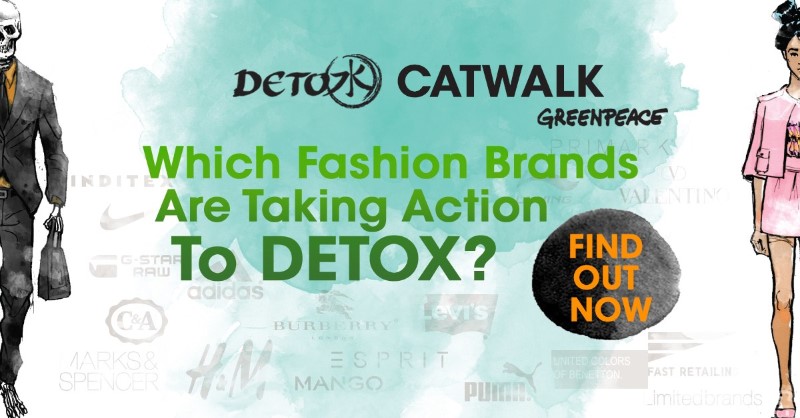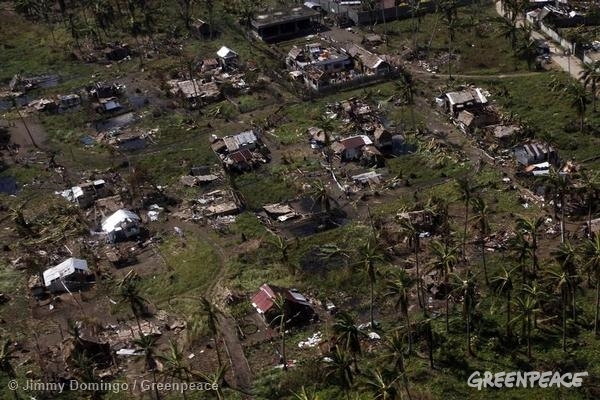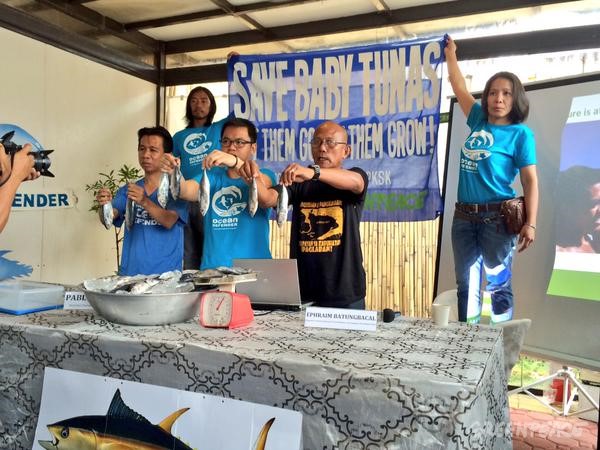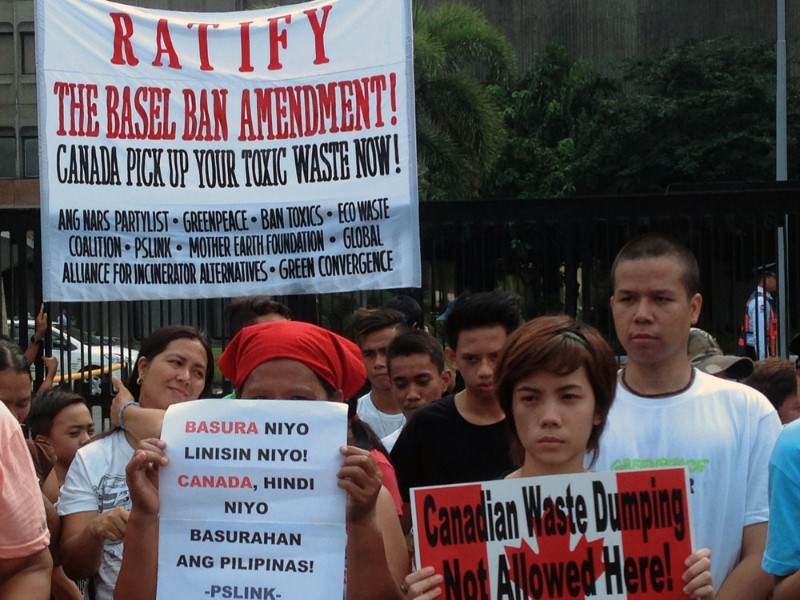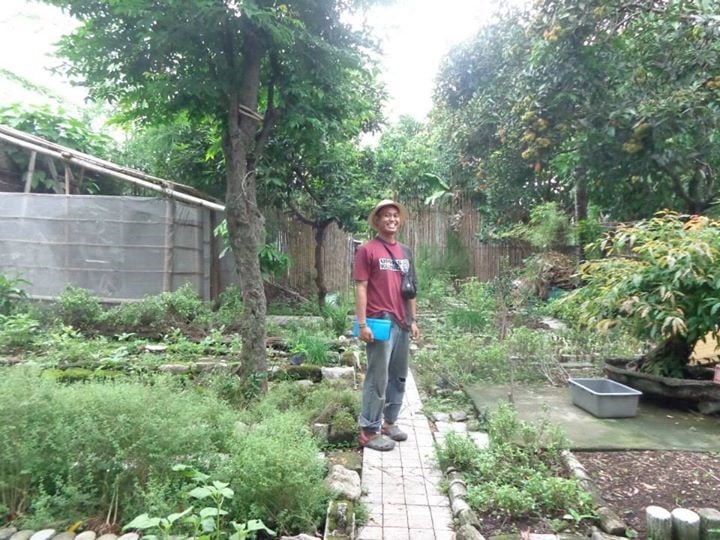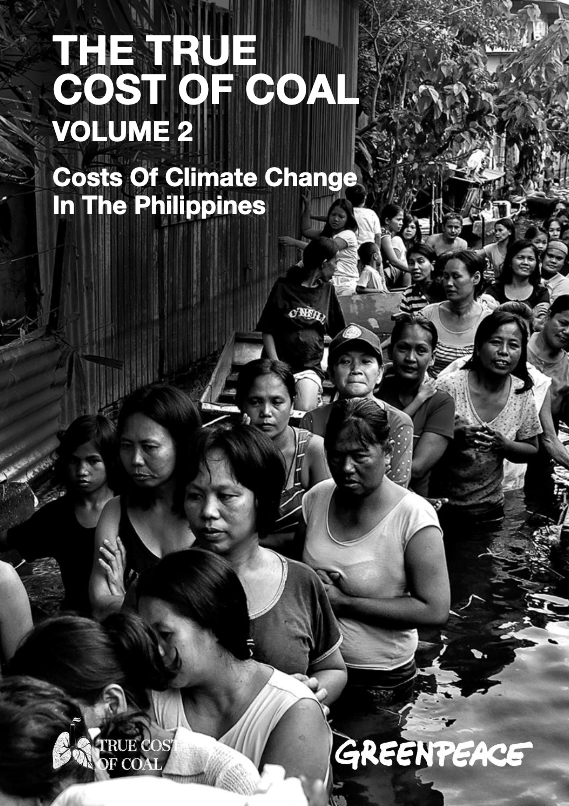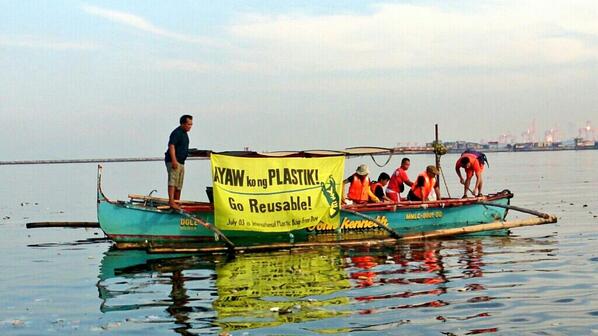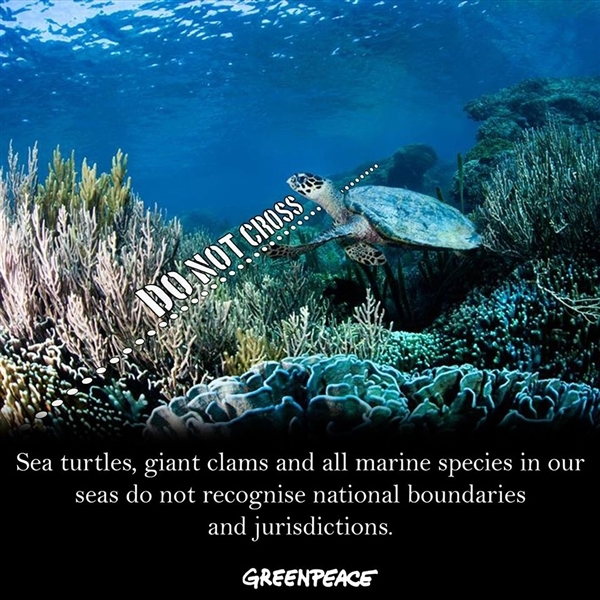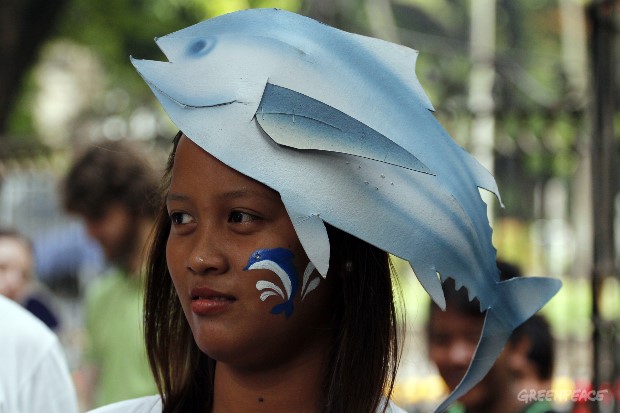All articles
-
Greenpeace ranking reveals fashion companies’ action on toxic pollution
Beijing/ Manila, 19 March 2015 – Greenpeace East Asia today released its Detox Catwalk, an online platform assessing how effectively major fashion brands are removing toxic chemicals from their supply chains and tackling water pollution [1]. Inditex (which owns Zara), Fast Retailing (which owns Uniqlo) and H&M join 13 other ‘Detox Leaders’ in this year’s…
-
Filipino farmers share ‘seeds of hope’
Ecological farmers in the Philippines have pooled their expertise and resources and travelled close to 600 km (370 miles) to help farmers in Dolores, Eastern Samar, get back on their feet following Typhoon Hagupit.
-
Greenpeace expose juvenile ‘baby’ tuna catch in Philippine tuna industry
Manila Philippines – Greenpeace today released the results of an investigation into juvenile bycatch, showing evidence that ‘baby’ skipjack, yellowfin and bigeye tuna are unloaded regularly at the General Santos fish port. The investigation was carried out in the lead up to the annual meeting of tuna stakeholders at the 11th Western and Central Pacific…
-
Groups demand immediate return of Canadian toxic waste
As the illegal Canadian toxic waste shipments fester in Philippine ports for 16 months, public furor over the Canadian government’s brazen defiance of international law erupted anew in Manila as environment and public health groups staged a street protest in front of the Department of Foreign Affairs (DFA) commemorating the signing of the flawed international…
-
Backyard Gardening and Climate Change
I started my small organic herb and vegetable garden in front of my apartment in mid-2012 with the simple goal of growing pesticide-free vegetables for me and my family. Like…
-
Briefing Paper: Forum on Fish Aggregating Devices
Fish aggregating devices (FADs), called payao in the Philippines and rumpon in Indonesia, are large floating objects deployed by fishing vessels to attract fish and make easier the task of finding and catching them. FADs work because tuna and a whole range of other fish and marine animals instinctively gather around such floating objects (as…
-
True Cost of Coal in the Philippines (Volume 2)
Given the economic, social and environmental havoc that climate change has wrought in the Philippines, embracing coal is a dangerous policy. Short term benefits of coal to some elite players…
-
Reducing our Plastic Footprint
Today, July 3, is International Plastic Bag Free Day. Globally, citizens and organizations are organizing activities highlighting the issue of plastic bag use and its effects, thereby strengthening the call…
-
Territorial fight is an ecological tragedy
It is hard to forget those graphic images of sea turtles and giant clams being poached to be traded illegally, their habitats being polluted and destroyed — in the backdrop of heightened territorial dispute in the South China Sea, which the Philippines now refers to as the West Philippine Sea.
-
Fisherfolk groups to President Aquino: Save Philippine fisheries, adopt Roadmap to Recovery
Manila, Philippines, 30 May 2014 – On the eve of National Fisherfolk’s Day, close to 1,000 people from fisherfolk groups, civil society and non-government organizations marched to Malacañang in festive sea creature costumes to deliver their proposed Roadmap to Recovery for Philippine Oceans to address the declining state of our national seas. They urged the…

